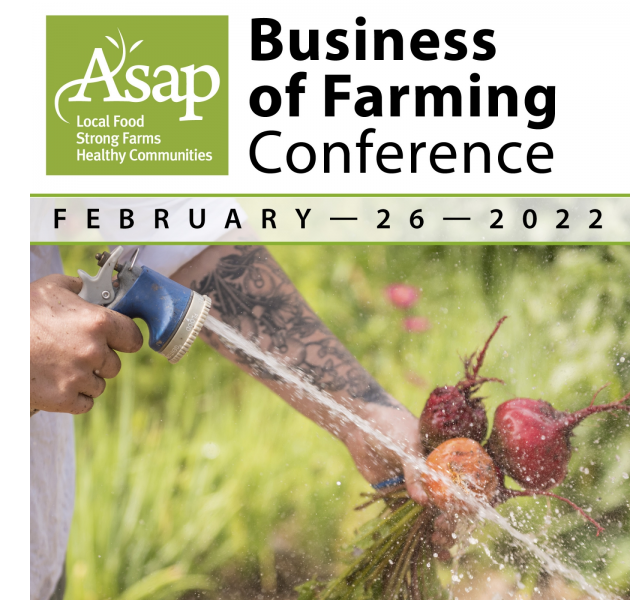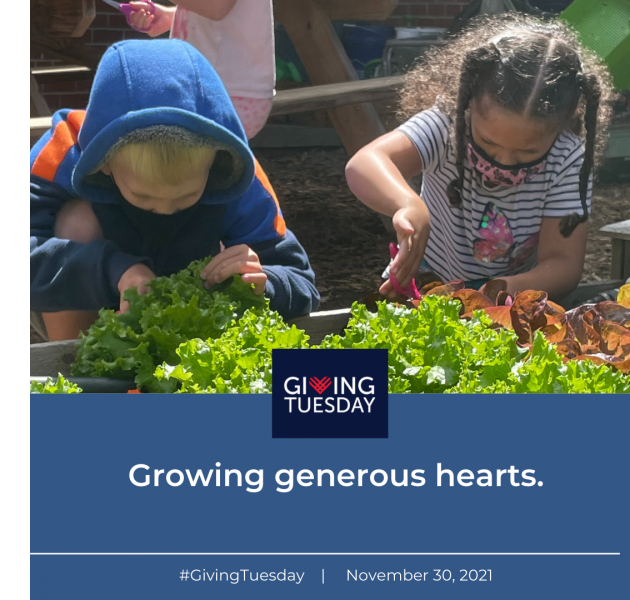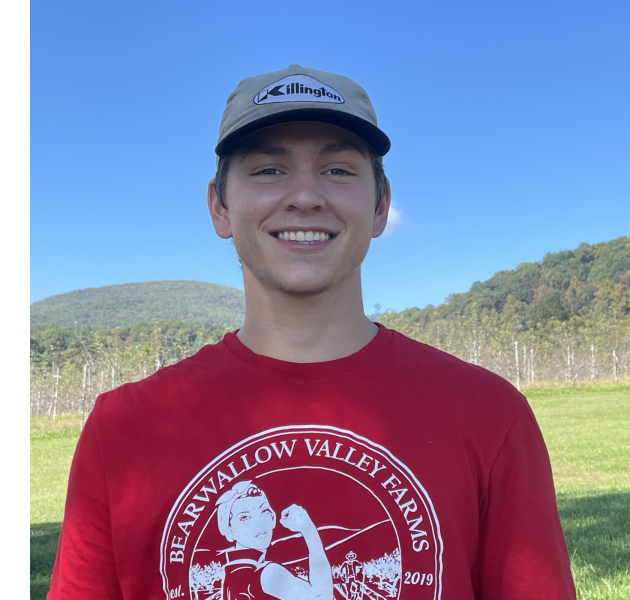|
|
|
monthly news from ASAP | OCTOBER 2021 | asapconnections.org
|
| |
|
|
Happy National Farm to School Month!
|
This statewide Crunch, coordinated with NC Farm to Preschool Network and Farm to School Coalition of NC, promotes healthy eating and supports farm to school and other local food purchasing initiatives throughout the state. It’s also a fun way to connect food and agriculture to all kinds of classroom curricula—from science to art.
Haven't had a chance to crunch yet? There's still time! You can crunch any time in October, from anywhere! Get resources for planning a Crunch event from coordinator partners Growing Minds, North Carolina Farm to Preschool Network, and North Carolina Farm to School Coalition. Find local apples at farmers markets around the region. |
|
 |
Business of Farming Conference Scheduled for Feb. 26
|
 Save the date! ASAP’s Business of Farming Conference will be held Saturday, Feb. 26, 2022, at the Mission Health/A-B Tech Conference Center in Asheville. Registration will open next month. Save the date! ASAP’s Business of Farming Conference will be held Saturday, Feb. 26, 2022, at the Mission Health/A-B Tech Conference Center in Asheville. Registration will open next month.
The annual conference brings together professional and aspiring farmers from across the Southeast to network and share resources to build viable farm businesses. Farmers will learn about marketing, business planning, branding, and management from regional experts and innovative peers. The popular Grower-Buyer Meeting is a chance for farmers and producers to meet directly with chefs, grocers, and distributors to discuss sourcing.
The Farmers Market Summit, held concurrently, brings together market managers from throughout the region for peer-sharing, technical assistance support, and annual planning.
Interested in sponsorship or exhibitor opportunities? Email [email protected].
|
|
 |
Make a Plan for Giving Tuesday
|
 Giving Tuesday is Nov. 30, just one month away. This global day of generosity was started in 2012 with a simple idea of encouraging people to do good. You can show your generosity in a variety of ways during Giving Tuesday—whether it’s helping a neighbor, advocating for an issue, sharing a skill, or giving to causes—like ASAP! Giving Tuesday is Nov. 30, just one month away. This global day of generosity was started in 2012 with a simple idea of encouraging people to do good. You can show your generosity in a variety of ways during Giving Tuesday—whether it’s helping a neighbor, advocating for an issue, sharing a skill, or giving to causes—like ASAP!
We’re excited to share ways you can support ASAP and the local food movement on this special day of giving. Every act of generosity counts. Stay tuned!
|
|
 |
New Report from the Local Food Research Center
|
 How do food entrepreneurs and value-added products play into our local food and farm economy? Check out the new report from our Local Food Research Center, “Added Value in the Local Food System.” How do food entrepreneurs and value-added products play into our local food and farm economy? Check out the new report from our Local Food Research Center, “Added Value in the Local Food System.”
The research investigated the experiences of local food entrepreneurs to understand their motivations for working with local foods, the challenges they experienced, and the strategies they used to make local food-centered endeavors financially viable. This paper also builds on an earlier study of the region’s emerging local food system, which in large part looked at ways food buyers in retail and institutional settings negotiate the tensions between locally grown food and larger market-based realities.
Read the full report.
|
|
 |
 FACES OF LOCAL FACES OF LOCAL |
| |  ASAP likes to share the stories of people in the community who help us fulfill our mission. This month we talked to Tony Norcia, a dietetic intern at Lenoir-Rhyne University. Lenoir-Rhyne is a partner in ASAP’s Growing Minds @ University program, which equips pre-service students with knowledge and experiences to be able to incorporate local food and farm to school/farm to preschool activities into their careers as dietitians. Tony is currently completing a 12-week Community Nutrition and Administration rotation at Bearwallow Valley Farms with farmer/owner and registered dietitian Nicole Coston. ASAP likes to share the stories of people in the community who help us fulfill our mission. This month we talked to Tony Norcia, a dietetic intern at Lenoir-Rhyne University. Lenoir-Rhyne is a partner in ASAP’s Growing Minds @ University program, which equips pre-service students with knowledge and experiences to be able to incorporate local food and farm to school/farm to preschool activities into their careers as dietitians. Tony is currently completing a 12-week Community Nutrition and Administration rotation at Bearwallow Valley Farms with farmer/owner and registered dietitian Nicole Coston.
What led you to be interested in soil health and its relationship to nutrient density?
During my time at Clemson University, I had the opportunity to work with the ProduceRx program at the Clemson Free Clinic. We focused on repairing disease states with nutrient-dense foods. It was amazing to see the progress many individuals were able to make to reach their nutrition goals by simply incorporating farm-fresh ingredients into their diet.
Tell me about the work you’re doing with Bearwallow Valley Farms.
In this portion of my internship, I have the opportunity to work side-by-side with owner and registered dietitian Nicole Coston. I help Nicole run day-to-day operations of the farm and social media outreach, and have even had the chance to get my hands dirty in the field. Our farm has a CSA program that requires many hours of attention so that we can provide the highest quality local produce to our community. Also, I have partnered with the WCCA [Western Carolina Community Action childcare centers] in our region to conduct farm to school sessions with students. We have so much fun trying new veggies and learning about the farm.
What are some of the activities you’ve done with the WCCA students?
This has been my favorite part of the internship thus far. Each week I have introduced new fruits and veggies to the students and they are the best taste testers! Besides trying new foods, I also work on listening and creative skills with the kiddos. They especially loved our unit on trying local apples.
Are there resources from Growing Minds and ASAP that you’ve used in your work?
The Growing Minds website has been a huge help with planning fun and exciting activities for the young students to enjoy. ASAP staff has been a tremendous help providing books as well as recipe cards and stickers for the students to bring home.
What are some of the links you see between dietetics and local food or farm to school/preschool work?
Dietetics is the field of study that encompasses all of our health through nutrition intervention, so local food doesn’t fall far from the dietetics tree. Our community has to understand the environmental and economic impacts that local items can provide to our region. By supporting your local farmer we can rapidly reduce the resources used to import agricultural products. If we can improve our health with more nutrient-dense foods while lessening our carbon footprint on the world, don’t you see why local food is the best way to go?
What do you hope to do once you are a registered dietitian?
My clinical internship at the VA hospital in Asheville begins this January once I wrap at the farm, then we are in a home stretch to study for the registered dietitian exam that I will certainly pass on the first attempt. I’d love to do individual nutrition counseling with clients along with remaining involved with the local food revival. Working on the farm is only scratching the surface of where I know it could grow, so I do not want to rule out remaining at the farm. I am excited for what the future holds for sure.
|
|
|
|
 RECIPE OF THE MONTH RECIPE OF THE MONTH |
| | 
Planning on carving a jack-o-lantern this week in celebration of Halloween? Don’t throw away your pumpkin seeds! Pumpkin seeds are a healthy source of fiber, protein, and vitamins—and can be baked into a tasty, crunchy fall treat. Season with a little salt before roasting or toss them with a blend of dried spices to make up your own unique flavor profile! This recipe is part of our Growing Minds Day by Day on pumpkins. Pictured is a student at Hawthorn Montessori getting seeds ready to roast.
Ingredients:
- Raw pumpkin seeds (scooped from inside a pumpkin)
- 1-2 tablespoons olive oil or melted butter
- Salt
- Dried spices of your choice (ideas: black pepper, garlic powder, paprika, cinnamon, brown sugar, curry powder)
Directions:
- Preheat the oven to 350°F.
- Rinse seeds to remove any pumpkin pulp. Dry the seeds on a clean cloth kitchen towel or paper towels.
- In a bowl, toss pumpkin seeds with a tablespoon or so of oil or melted butter, a pinch of salt, and a pinch of any spices you choose to use to season your seeds.
- Spread the coated seeds in a single layer on a baking sheet and roast for 20-30 minutes or until the seeds are golden brown. Stir the seeds a few times throughout baking.
|
|
|
|
PHOTOGRAPHER SPOTLIGHT |
|
Our October photo of the month features these funny faces from Last Penny Alpaca Farm in Weaverville, NC. In addition to local food, many Appalachian Grown farms continue a strong cultural tradition of fiber arts, selling yarn, felt, and handmade products. Some offer visits with fiber animals like alpacas, llamas, sheep, or goats. Search for fiber products at appalachiangrown.org.
|
|
|
|
 MEDIA HIGHLIGHTS MEDIA HIGHLIGHTS |
| “We’re all in this together. Our economic survival as farmers is connected to the economic survival of restaurants and working people. If we could all get on board with how to better evolve and adapt to these weather events, we’ll be better off in the future.”
|
|
|
|
|
|
|
| | |
ASAP's mission is to help local farms thrive, link farmers to markets and supporters, and build healthy communities through connections to local food.
|
|
|
|
|
|
|
|
|
|
|